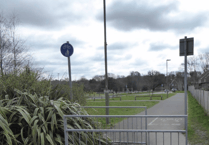EVERY day, we hear of authorities developing new policies to tackle challenges such as single-use plastic, the environment, immigration, road safety, housing, etc, but nothing seems to change.
The obvious reason for this is it’s a whole lot easier to set out plans and policies than actually do something that makes a difference.
Look how hard it has been to tackle the traffic problems in Farnham then think how hard it’s going to be to address climate change – and if we fail, it’s terminal for humanity.
There are many local environmental organisations (CPRE, SWT, Surrey Hills AONB, South Downs National Park to name just a few) all knowing what needs to be done to tackle the progressive harm being done to our wildlife and environment but they are under-resourced, rely on volunteer help and need local councils to step up as they are the relevant authority in planning and enforcement actions.
This was evident in the recent consultation response to Waverley’s Local Plan.
We may also look to government to provide leadership but there is a void here… no, it’s worse than that.
The recent sleaze and parties during Covid restrictions undermines the whole credibility of government – and again, when it comes to actions, why is UK government only now consulting on single-use plastic plates and cutlery when the EU implemented a ban on these items in June 2021? More talk, not enough action.
In the middle, we’ve got local authorities that government is increasingly expecting to deliver real change on the ground. And this is worrying.
Over the past 20 years, as a society, we’ve got used to expecting everything immediately and at ever-reducing prices.
Twenty years ago, a computer cost the equivalent of a month’s average pay and it took a week to be delivered. Now it’s a day’s average pay and it can be delivered within 24 hours.
We’ve expected local councils to provide more services, to a larger number of people at lower cost.
Unfortunately, that isn’t sustainable and it’s no wonder many services such as roads are in such poor condition.
The rapidly-increasing cost of gas and electricity is a wake-up call as these sorts of increases can’t be sucked up by organisations as there are no margins or spare budgets left.
The cost is going to be passed right back to the consumer and we will have to make choices about where we spend our money.
Take a weekend break with the family, pay more for heating or insulate the house?
There is no doubt local authorities are under-funded and under-resourced and if we really want them to deliver the services we need, we are going to have to pay more for them.
But that doesn’t explain some of the shortfalls in services delivered by councils.
As an example, look at what is happening in East Hants compared to Waverley.
East Hants is tackling the challenge of sustainable housing head on and saying it will go beyond current national building standards.
It is giving licences to local communities to look after areas of land in parishes that are important to them. It is training tree wardens to help protect existing woodland and hedgerows.
My experience, and that of many other residents and organisations I talk to, is a lack of consistency in Waverley Borough Council, inefficient practices and lots of reasons why things can’t be done.
This often applies to really basic activities that don’t cost any more to do properly.
So, if the council wants residents to understand its position and at some stage accept higher rates, which will be inevitable, it needs to get its house in order.
It needs to change the mindset from what can’t be done to what can be done.
There are a whole host of people and organisations willing and able to give their time and expertise to help their communities.
If the council doesn’t engage with these people and support the organisations with actions, it is ignoring a whole load of resources and losing the support of tax payers when it comes to increasing council taxes.
By Colin Shearn, Extinction Rebellion, Waverley and Borders




